Raspberry Pi 5 vs Mini PC: Your Guide to Choosing the Right Device

The Raspberry Pi 5, the latest iteration of the famed single-board computer series, continues its legacy of versatility and affordability. In contrast, Mini PCs are compact, fully-featured computers that deliver desktop-like performance in a tiny footprint.
If you were to buy a Pi5, you'd find that the price of a Pi5 with power plug and case is around $100-130. This price is comparable to some (entry-level) mini PCs based on Intel N95, N97 or N100. This article provides a comprehensive comparison - Raspberry Pi 5 vs Mini PC (entry-level) - to help you choose the right device for your specific needs, project or budget.
Mini PC and Pi 5 Overview
What is Raspberry Pi 5?
The Raspberry Pi 5 is the latest model in the Raspberry Pi series of single-board computers, renowned for their affordability and versatility. Featuring a powerful quad-core Arm Cortex-A76 processor at 2.4 GHz and the enhanced VideoCore VII GPU, it offers significant performance improvements over previous versions. Ideal for education, DIY projects, and IoT applications, the Raspberry Pi 5 provides an energy-efficient platform for programming and hardware development in a compact form factor.
What is an Entry-Level Mini PC?
Mini PCs are compact, fully-featured computers that deliver desktop-like performance within a small footprint. Entry-level Mini PCs are equipped with Intel N95, N97, N100 and other processors and are priced close to Pi 5. They can provide better performance and experience for daily tasks such as web browsing, office applications, media streaming and even light games. Running standard operating systems such as Windows or Linux, Mini PCs offer broad software compatibility and often allow for upgrades to RAM and storage, making them a convenient choice for users seeking a balance between performance and size.

The Raspberry Pi 5 and entry-level Mini PCs differ notably in performance. The Raspberry Pi 5, with its quad-core Arm Cortex-A76 CPU and VideoCore VII GPU, handles everyday computing and media playback efficiently. However, entry-level Mini PCs equipped with Intel N95 or N100 processors and integrated graphics offer superior processing power and graphics performance, making them better suited for more demanding applications.
In terms of memory and storage, the Raspberry Pi 5 provides 4GB or 8GB of RAM, which supports basic multitasking. Mini PCs typically come with higher RAM capacities, enhancing multitasking and overall system performance. While the Raspberry Pi 5 relies on expandable storage via microSD cards—potentially resulting in slower read/write speeds—Mini PCs often feature built-in SSDs, offering faster data access and improved system responsiveness.
Mini PC vs Pi 5: Price and Value
When evaluating the price and value of the Raspberry Pi 5 versus entry-level Mini PCs, it's important to consider both the initial costs and the long-term expenses. While the Raspberry Pi 5 boasts a lower base price, typically starting at around $60 for the 4GB model, the need for additional accessories like a power supply, case, and storage can raise the total investment to approximately $100–$130. In contrast, entry-level Mini PCs, often priced within the same range, usually come equipped with essential components and are ready to use right out of the box, potentially offering more immediate value for users seeking a complete package.

- ACEMAGIC & AOC T8Plus Mini PC Only $139
- Intel Alder N97 processor, 4 cores / 4 threads
- 16GB LPDDR5 6400MT/s ×1
- 512GB M.2 2242 SATA SSD 1 x M.2 NVMe PCIe3.0 SSD
- Dimensions: 894mm*894mm*435mm
Looking at long-term value, factors such as cost-effectiveness over time and energy consumption become significant. The Raspberry Pi 5 is known for its energy efficiency, consuming less power than most Mini PCs, which can lead to lower electricity bills over prolonged use—an important consideration for always-on applications like servers or home automation systems. Entry-level Mini PCs, though more powerful, generally have higher energy demands, which may result in increased operational costs over time. Therefore, depending on your usage patterns and energy concerns, the Raspberry Pi 5 might offer greater long-term savings despite the initial accessory expenses.
Pi 5 vs Mini PC: Use Cases and Ideal Applications
Choosing between the Raspberry Pi 5 and a Mini PC often comes down to their ideal use cases. The Raspberry Pi 5 is perfect for education and learning programming, offering an accessible platform for students and hobbyists to delve into coding and electronics. Its flexibility makes it a favorite for DIY projects and IoT applications, where customization and hardware interfacing are key. Additionally, its low power consumption is ideal for setting up energy-efficient servers and network devices that run continuously.
In contrast, Mini PCs are better suited for home office and productivity tasks, providing the necessary performance for word processing, web browsing, and multitasking in a compact form. They excel as media centers and streaming devices, handling high-definition content with ease. For light gaming and entertainment, Mini PCs offer a balance of performance and convenience, making them a versatile choice for everyday computing needs.
Mini PC vs Pi 5: Operating Systems and Software Compatibility
| Criteria | Raspberry Pi 5 | Mini PCs |
|---|---|---|
| Operating System Support | Primarily Linux-based operating systems for ARM CPUs | Full support for Windows and Linux operating systems |
| Software Availability | Substantial within the Linux ecosystem | Broad, includes professional applications and games requiring x86 architecture |
| Architecture Compatibility | Some software may require emulation | Direct compatibility with a wide range of software due to x86 architecture |
In terms of operating systems and software compatibility, the Raspberry Pi 5 primarily supports Linux-based operating systems for ARM architecture, with a broad range of software availability in the Linux ecosystem, although emulation may be required for certain applications. In contrast, the Mini PC offers comprehensive support for both Windows and Linux operating systems, and has an extensive software compatibility, including professional applications and games requiring x86 architecture. Thus, the Mini PC is able to directly interface with a wide range of desktop-grade software.
Mini PC vs Pi 5: Connectivity and Expansion
When it comes to connectivity and expansion, the Raspberry Pi 5 offers unique advantages for hardware enthusiasts and developers. It features a GPIO header that enables direct interfacing with sensors, actuators, and other electronic components, making it ideal for DIY projects and educational purposes that involve hardware prototyping. Additionally, its dual camera and display interfaces support custom camera projects and specialized displays, providing flexibility for creative applications. While it includes a PCIe 2.0 interface via an FPC connector for peripheral expansion, this is more limited compared to standard PCIe slots but still adds to its adaptability.
In comparison, Mini PCs focus on providing standard ports and expansion options suitable for general computing needs. They typically offer multiple USB ports, HDMI outputs, and sometimes the option to upgrade RAM and storage, enhancing their utility for everyday tasks and productivity. However, they lack GPIO access, which means they are less equipped for hardware prototyping or projects that require direct electronic interfacing. This makes Mini PCs a better choice for users who prioritize traditional computing functions over hands-on hardware development.
Recommended Reading: Single Channel vs Dual Channel RAM: Understanding the Impact on Performance
Considerations for Choosing Between Raspberry Pi 5 and Mini PCs

Choose Raspberry Pi 5 if:
-
You're interested in learning programming, electronics, and DIY projects.
-
Your applications are within the scope of its performance capabilities.
-
You need GPIO pins for hardware interfacing.
-
Energy efficiency and low cost are priorities.
-
You're comfortable using Linux and open-source software.
Choose a Mini PC if:
-
-
Software compatibility with Windows or x86-based applications is essential.
-
You need a compact desktop replacement.
-
Upgradability (RAM, storage) is important.
-
You're willing to invest more for increased capabilities.
Recommended Reading: Why are the ACEMAGIC Mini PCs Perfect for Coding?
Frequently Asked Questions
Which device is better for learning programming and electronics projects: Raspberry Pi 5 or Mini PC?
The Mini PC allows a degree of customization, such as upgrading RAM or storage, and is suitable for DIY projects reliant on software development or standard peripheral connections like USB. However, it lacks the GPIO pins and hardware interfacing capabilities of the Raspberry Pi 5. This makes it less suited for DIY projects and prototype designs that need direct interactions with sensors, motors, and other electronic components. For hardware development and prototype designs, the Raspberry Pi 5 is the preferred choice.
Can a Mini PC replace a Raspberry Pi 5 for DIY and prototyping purposes?
While a Mini PC offers greater processing power and runs standard desktop operating systems, it lacks the GPIO pins and hardware interfacing capabilities of the Raspberry Pi 5. This makes it less suitable for DIY projects and prototyping that require direct interaction with sensors, motors, and other electronic components. For hardware development and prototyping, the Raspberry Pi 5 is the preferable choice.
Recommended Reading
Mini PC vs Stick PC Comparison: How to Choose the Best Portable Device
Mini PC vs SFF PC: Compact Desktop Computer Comparison
Mini PC vs All-in-One (AiO) PC: Which One Is Right for You?
Mini PC vs. Traditional Desktop: Which Is Right for You
Dual NIC vs Single NIC Mini PCs: Is a Dual-NIC Mini PC better?
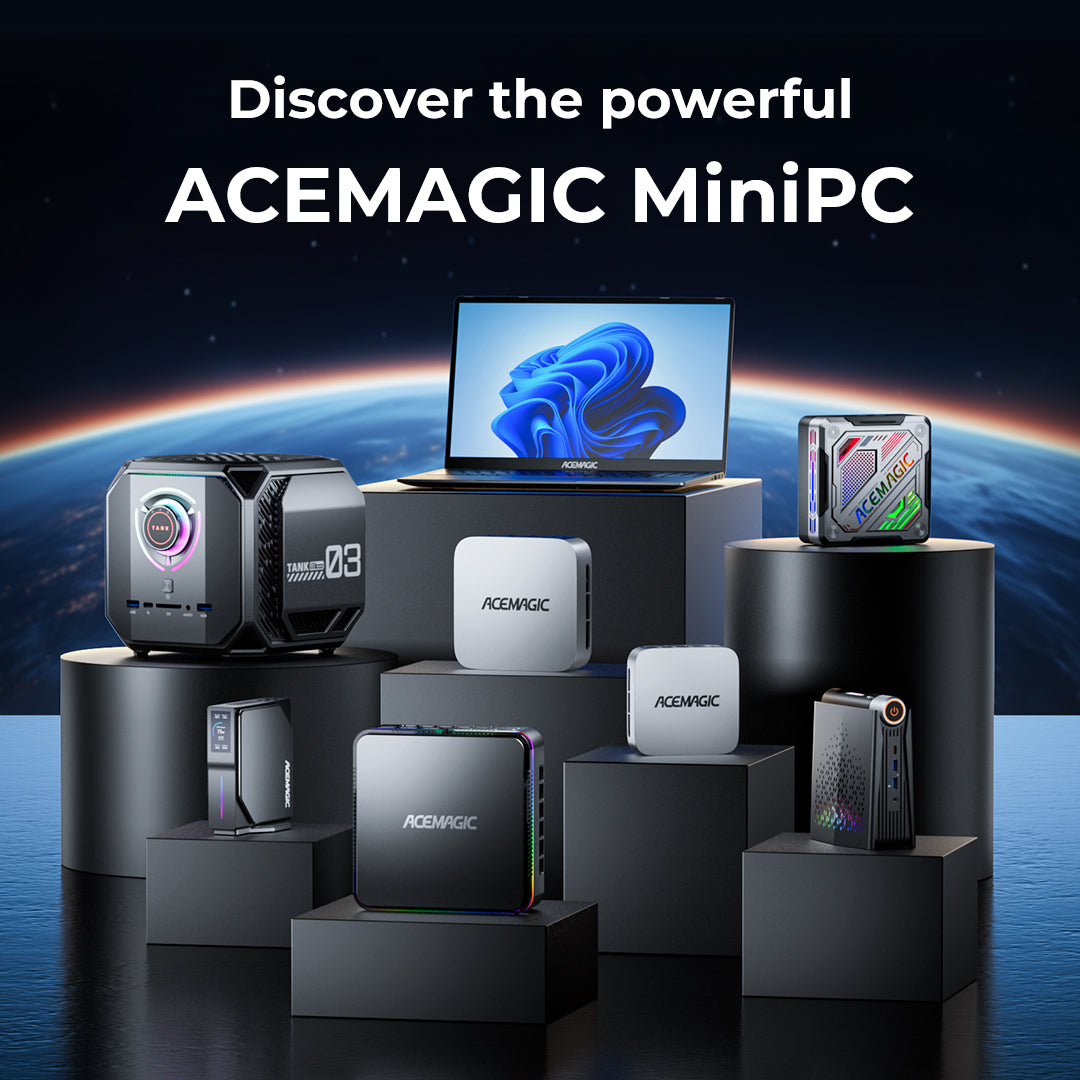
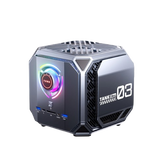
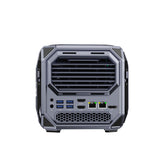
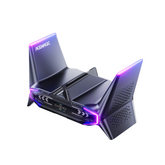


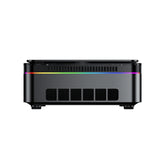
Leave a comment
Please note, comments need to be approved before they are published.